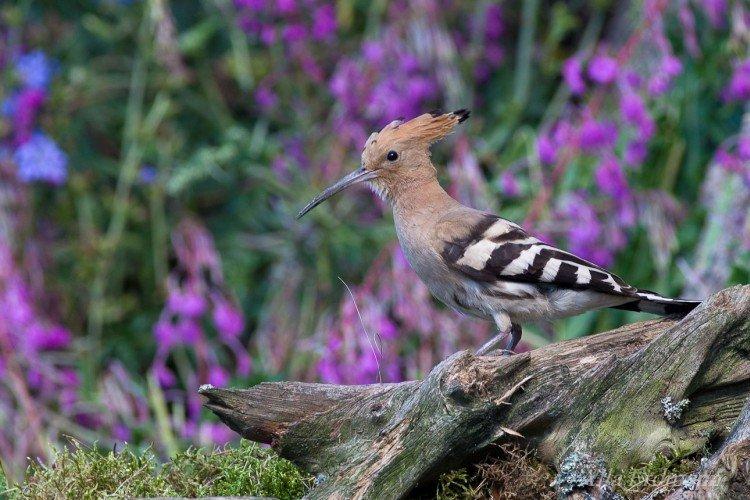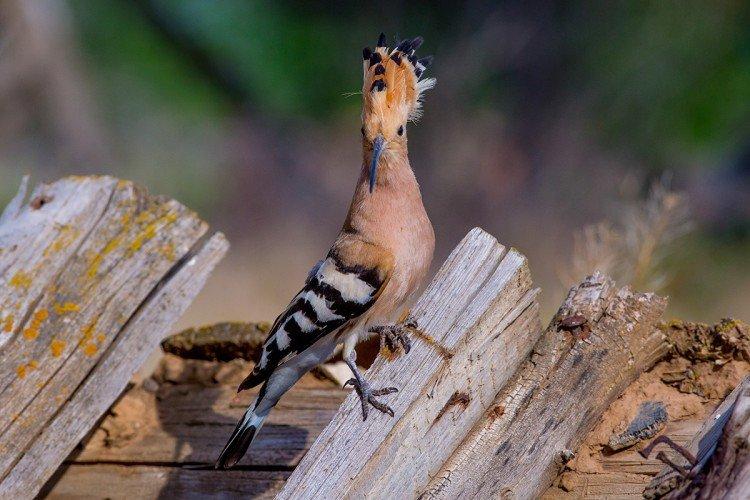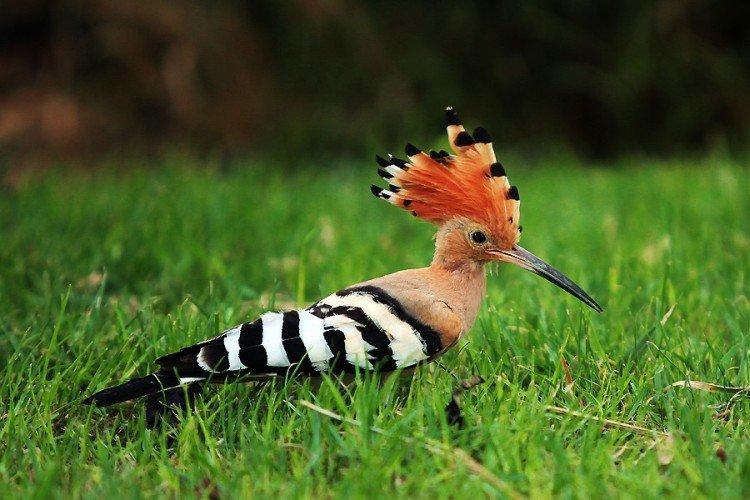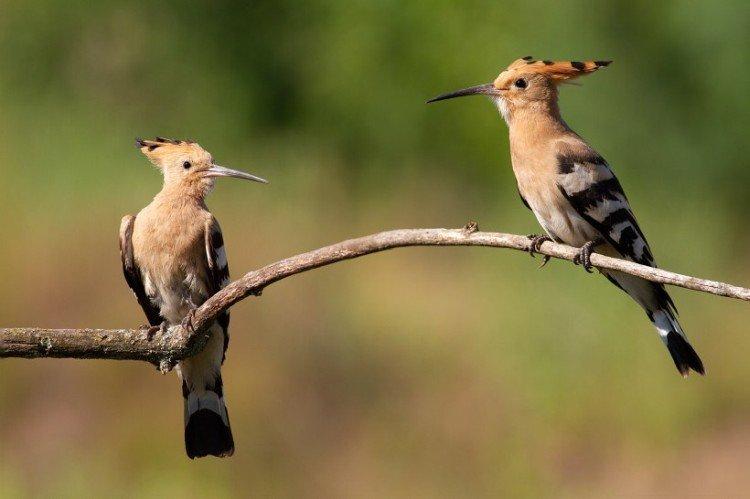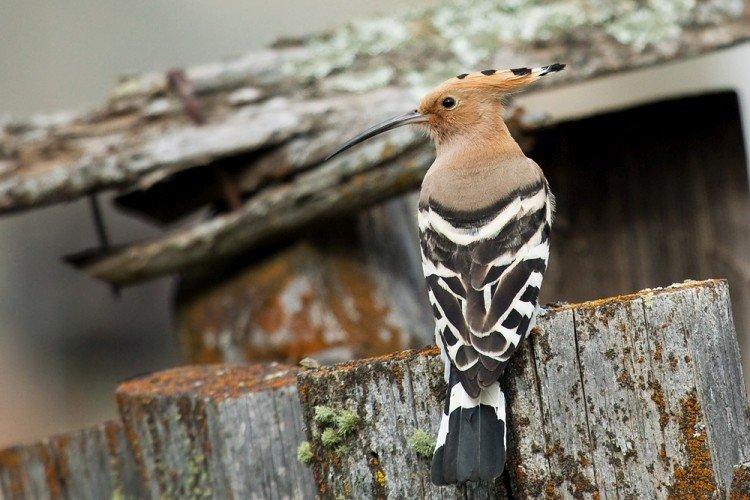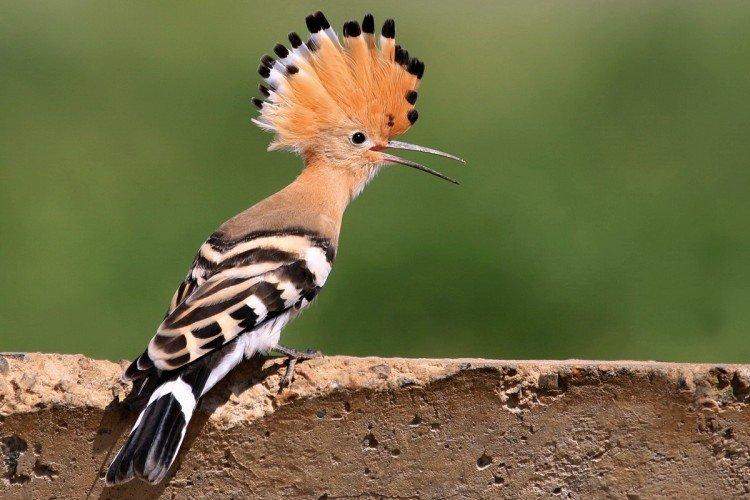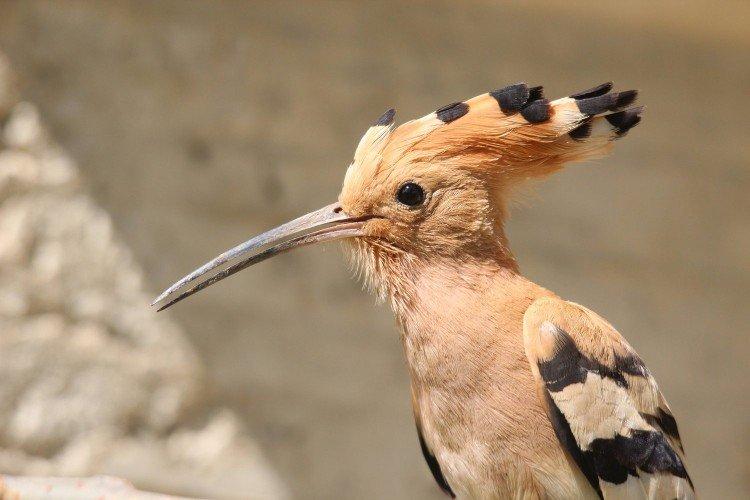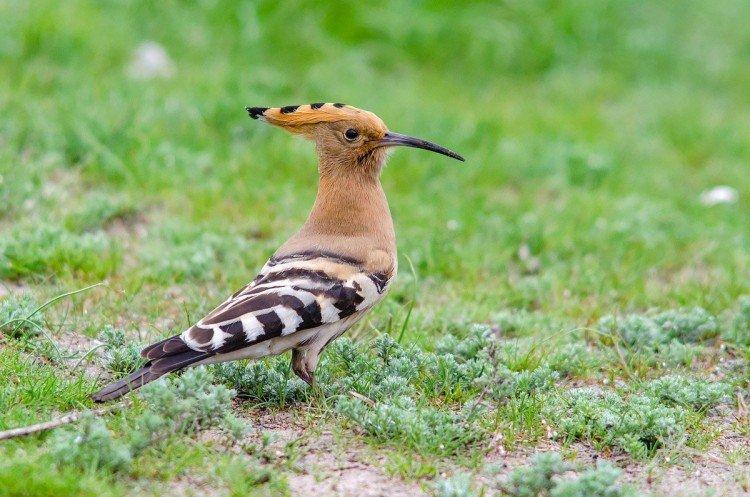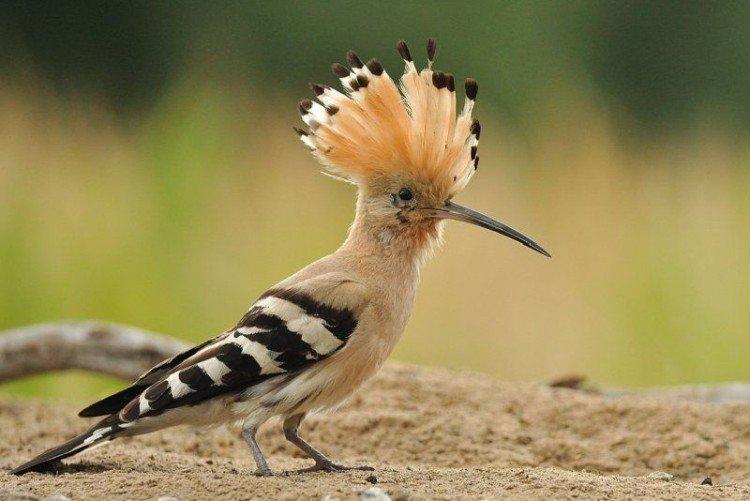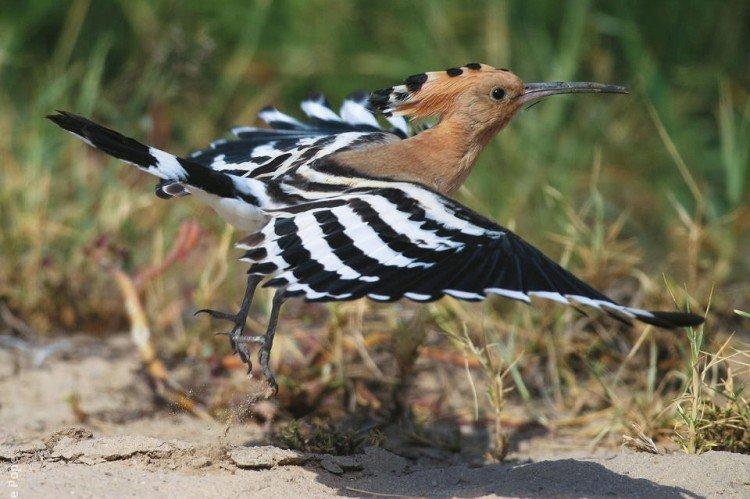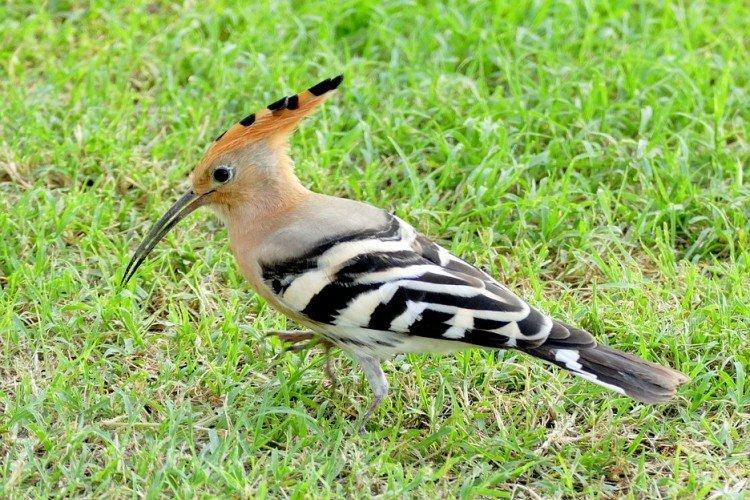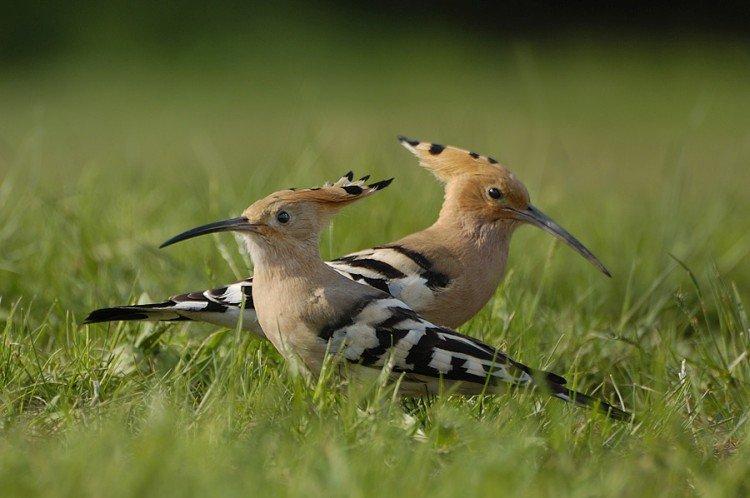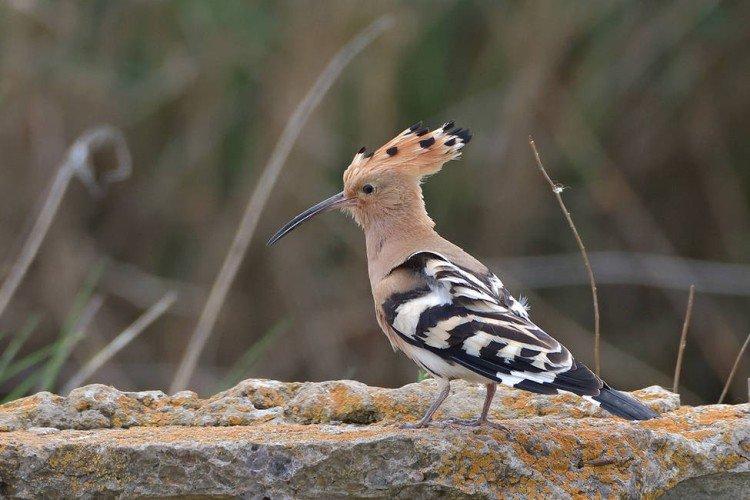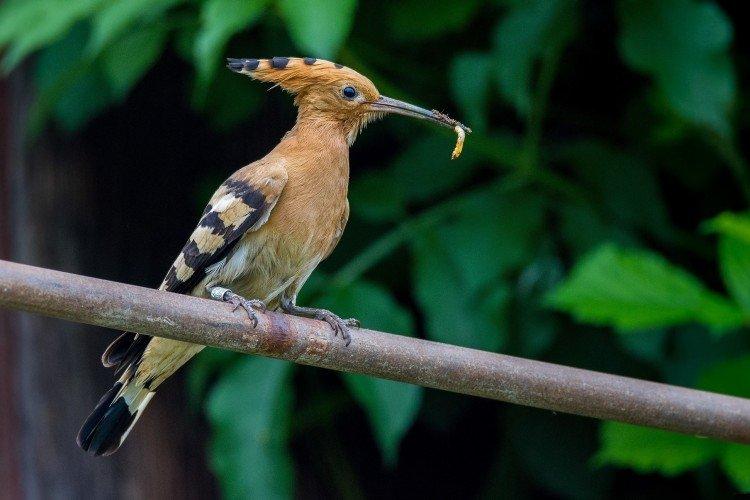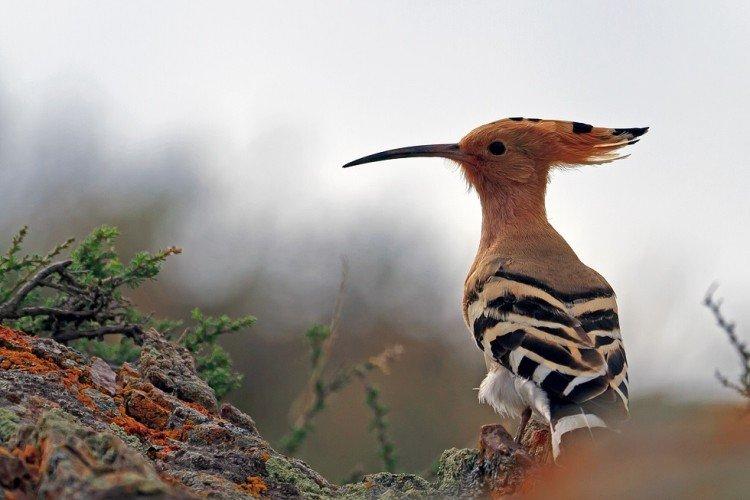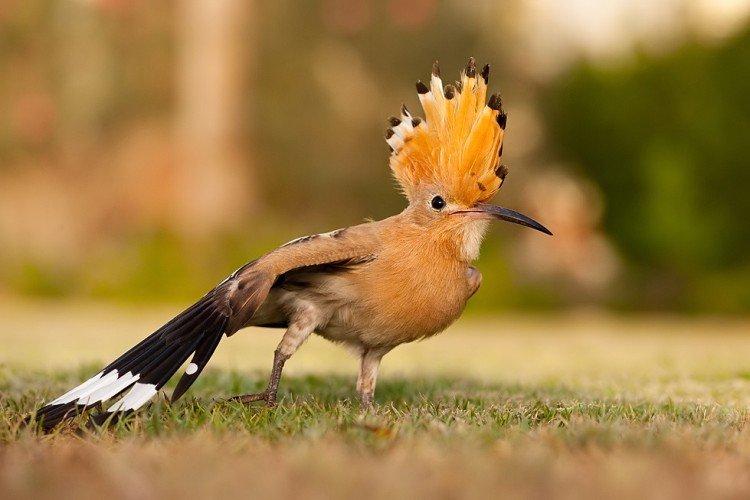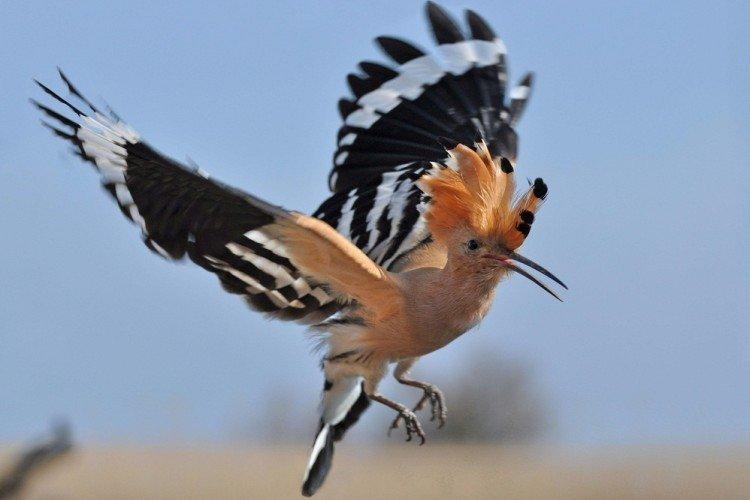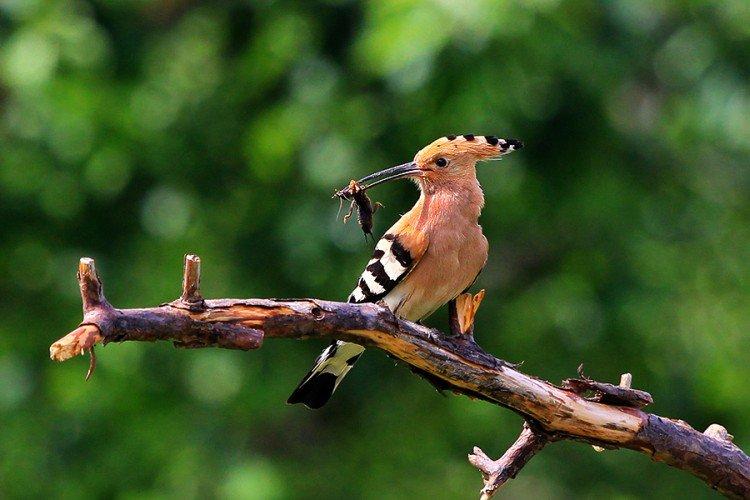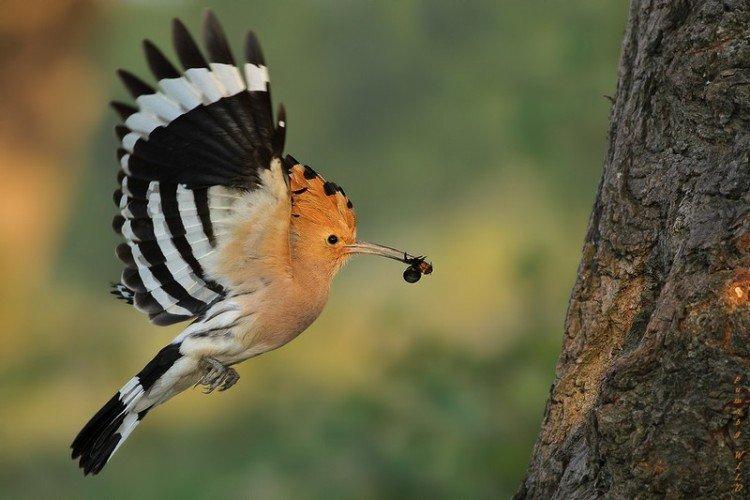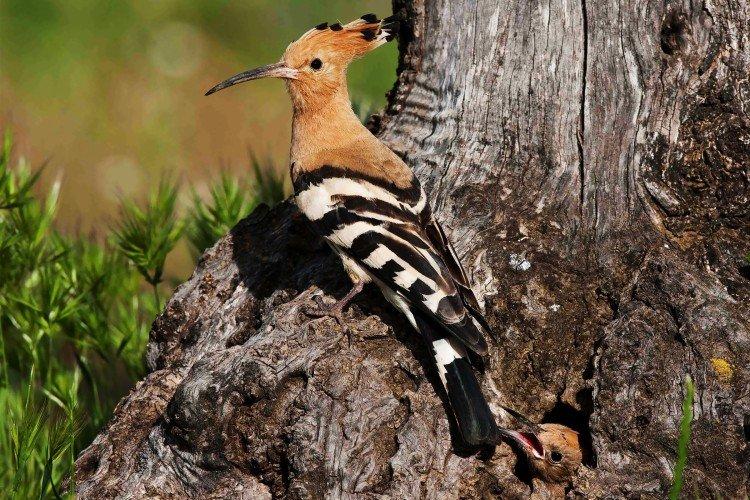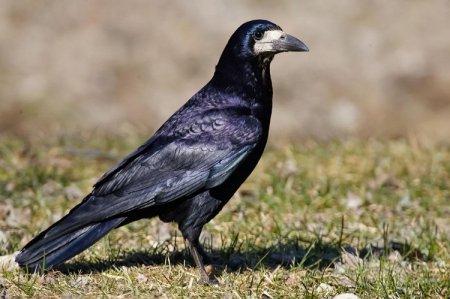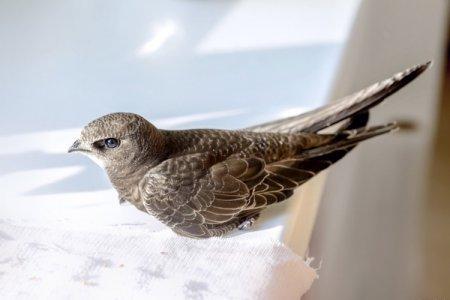
The funny hoopoe with its disheveled crest and striped wings is at least interesting. Do you want to know more about this eccentric and unusual bird? We have already figured out all the main nuances and are ready to share them!
general description
The hoopoe is a resident of the Old World and a fairly numerous genus in general. They belong to hornbills, but bird watchers around the world are still arguing about this.
The appearance of the hoopoe
The hoopoe is not a very large bird, up to 30 cm in length and with a wingspan of up to 48 cm. The first thing that catches your eye is the striped black and white coloring of the wings and tail. But the color of the chest and head depends on the specific species, but most often it is reddish.
The hoopoe has a long curved beak and an expressive red crest with black ends. When folded, it reaches a maximum of 10 cm, but the bird knows how to spread it with an impressive fan. The legs of the hoopoe are very strong and developed, but the tongue is reduced.

Male and female hoopoe: visual differences
Males and females practically do not differ from each other, so it is very difficult to accurately determine them visually. But the young have faded plumage, a short crest and still a short beak.
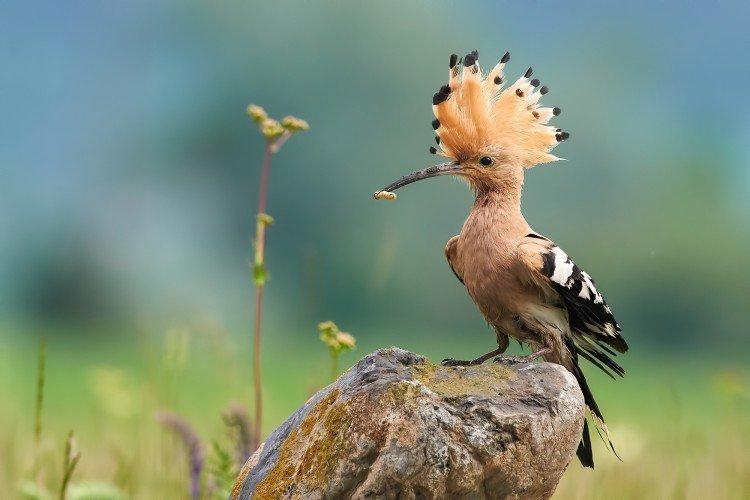
Singing
The voice of the hoopoe is very different from the usual trills of songbirds. On the other hand, from the dull "ud-ud-ud" it immediately becomes clear why this bird is called that.
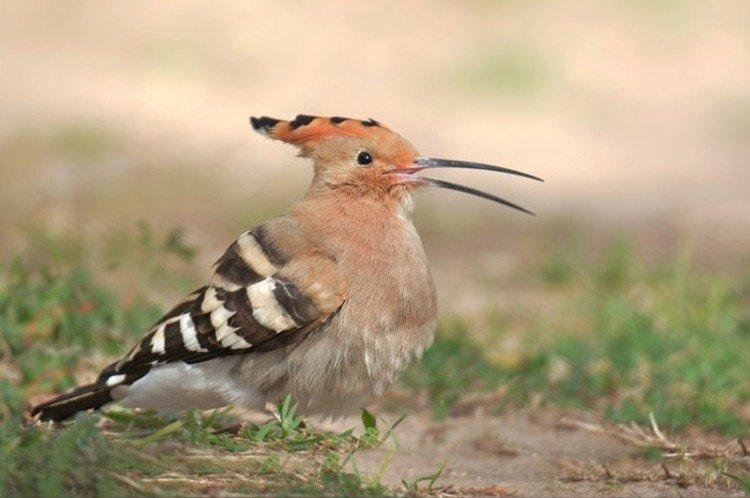
How long do hoopoes live?
Most often, the lifespan of a hoopoe ranges from 7-9 years. In nature reserves and zoos, with good conditions and care, life expectancy increases.
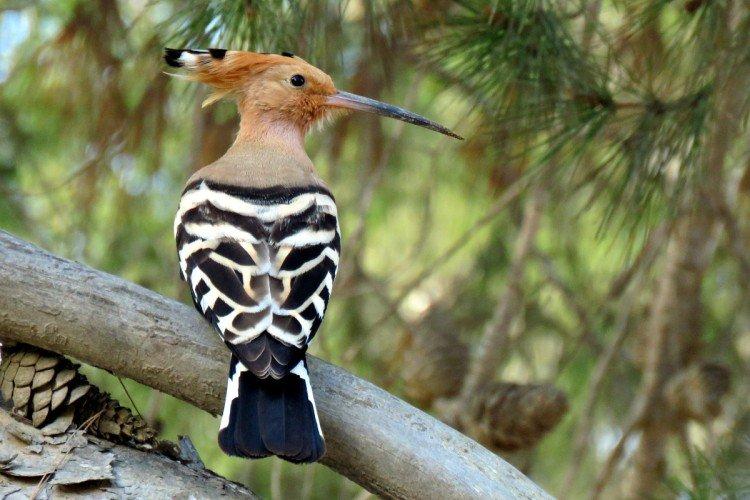
Smell
Hoopoes have special glands that secrete a pungent, oily liquid. Thus, during the nesting period, the bird denotes its territory and scares away small predators.
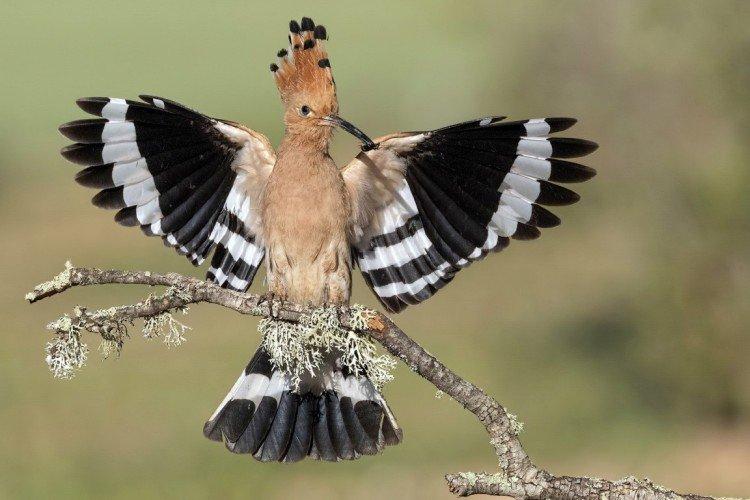
Flight
The flight path of the hoopoe is a bit like a butterfly fluttering. At the same time, it is very nimble and maneuverable, which makes it rarely prey to birds of prey. This dexterity persists on the ground.

History
Hoopoes are even mentioned in ancient Greek myths, the Bible and the Koran. In some regions of the Caucasus, it was considered a sacred bird and a symbol of spring. It was forbidden to kill hoopoes, and their nests were considered a good omen.
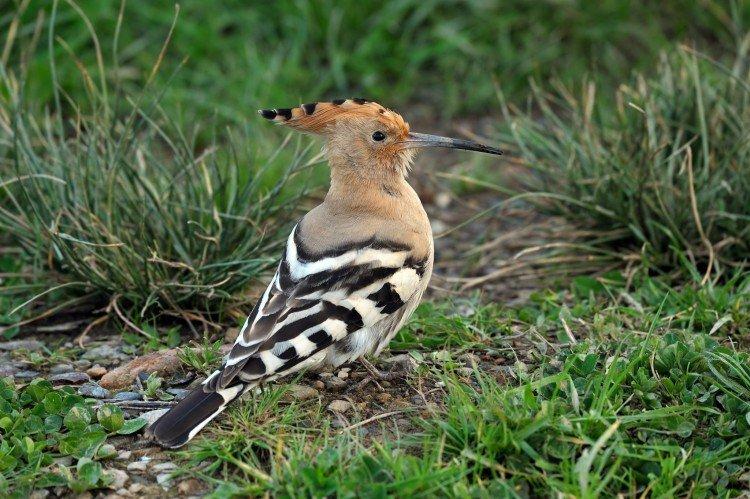
Types of hoopoe
The hoopoe has no species as such in the usual sense. Scientists identify a dozen subspecies, which differ from each other only in size, region of residence and shade. The most common of them is the common hoopoe, which inhabits most of Eurasia.
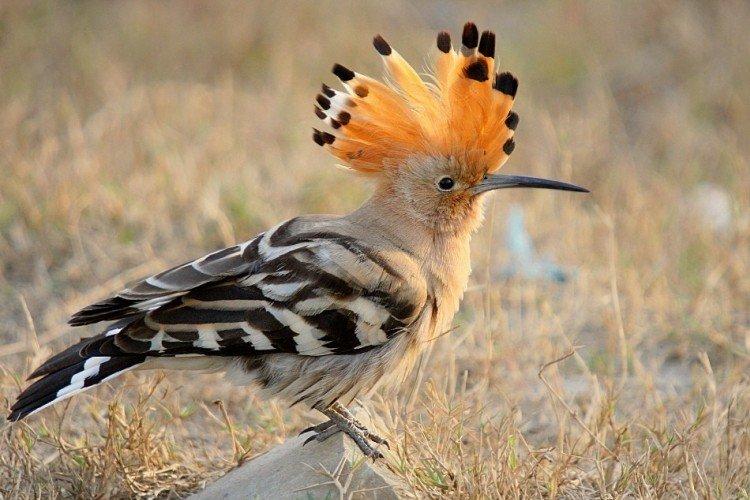
Lifestyle
In their habits, the hoopoes resemble much more familiar starlings. And if the bird senses a threat, from which it cannot escape, then it presses itself to the ground, swells in size and raises its beak.
Habitat
Hoopoes are common in the eastern and southern regions of Asia, Europe and Africa. But sometimes they are found in Scandinavia, the Alps and the Baltics. In Russia, hoopoes can be found in the wild near the Gulf of Finland and in most other areas of the European part.
The hoopoe prefers an open area without grassy thickets, but with individual tall trees. It is a bird of the steppe and savannah, and also of pastures and vineyards. Occasionally, hoopoes settle in cities near landfills.
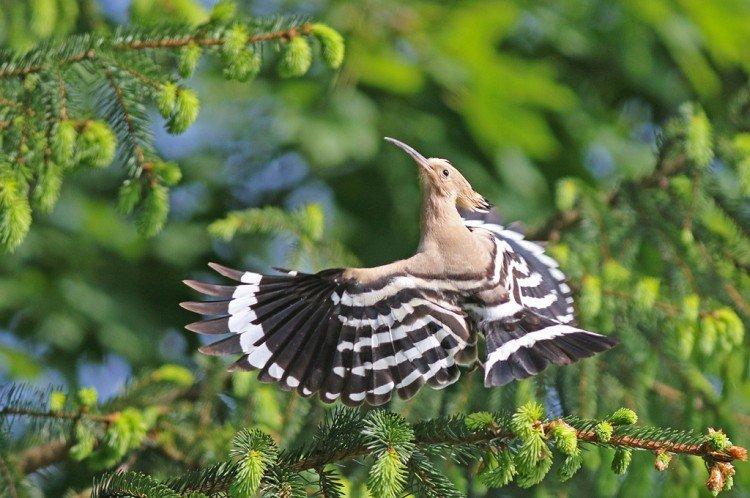
Diet
Basically, the hoopoe feeds on insects and other invertebrates. These are beetles, grasshoppers, butterflies, larvae, ants and termites, spiders, molluscs, wood lice, small lizards and frogs. The hoopoe masterfully hunts in the grass and finds its prey in the ground, wood, and even garbage heaps.
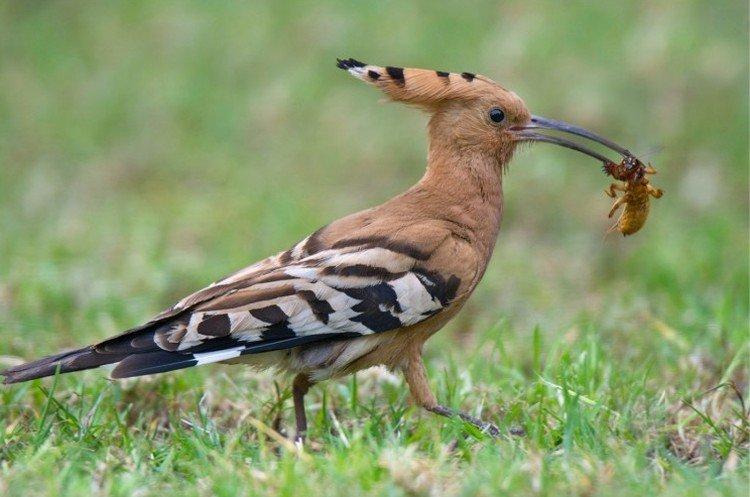
Wintering
The tendency to migrate hoopoe depends entirely on the region of its residence. Most often, they go to winter in Africa, the Mediterranean and southern regions of Asia. The migration season is very blurred: for some species from July to February, and for others from October to May.
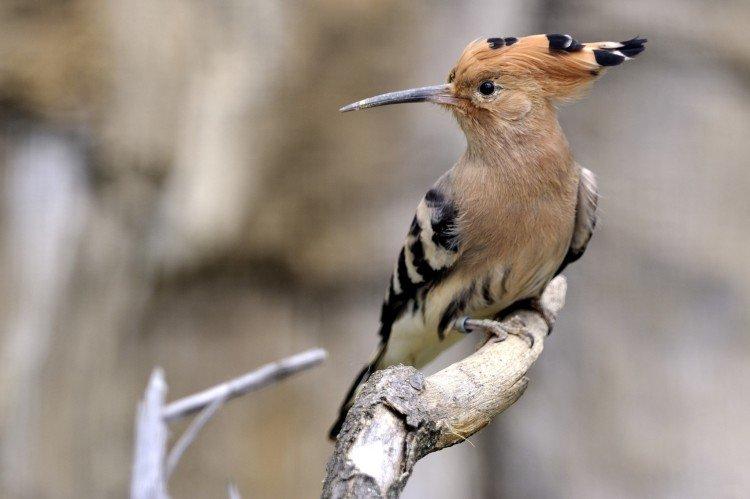
Keeping in captivity
The hoopoe gets used to a person well and will not fly away from him.The easiest way is to tame teenage chicks who are not yet accustomed to independent life, but are already fully fledged.
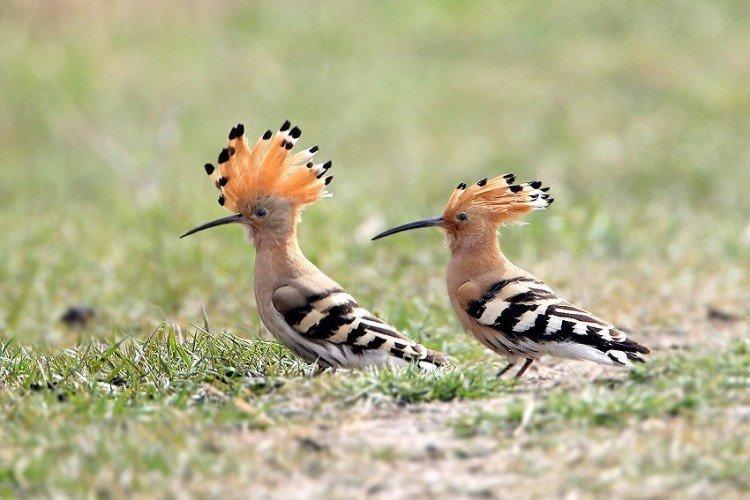
Reproduction of hoopoe
By the first year, the hoopoes reach sexual maturity. Males occupy territories and attract females with their loud calls. Pairs form once and for life, and nesting sites are used for several years.
Hoopoes settle at a distance, otherwise conflicts over territory cannot be avoided. Nests hide in hollows or crevices, but sometimes birds arrange them right on the ground. The nest itself is very simple, without lining and smelling unpleasant.
Once a year, the female lays several small oblong eggs, depending on the weather conditions. Moreover, she lays only one per day, and immediately begins to hatch it.
The incubation period lasts about 2 weeks, and the male gets food at this time. Later, both parents feed the hatched chicks, and after 3 weeks they begin to fly independently.
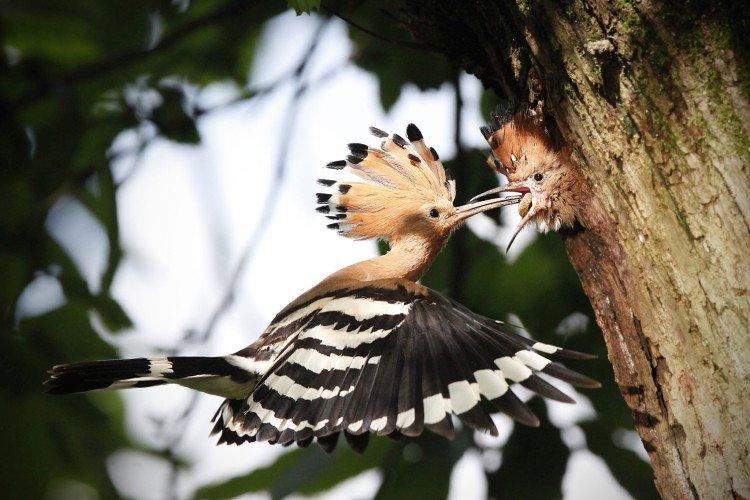
Natural enemies
Thanks to their skill to take a threatening position, hoopoes masterfully avoid most predators, because they become like something dangerous and hardly edible. In addition, they are rescued by the same pungent smell, because of which the bird is considered unclean. So the hoopoe has very few enemies!
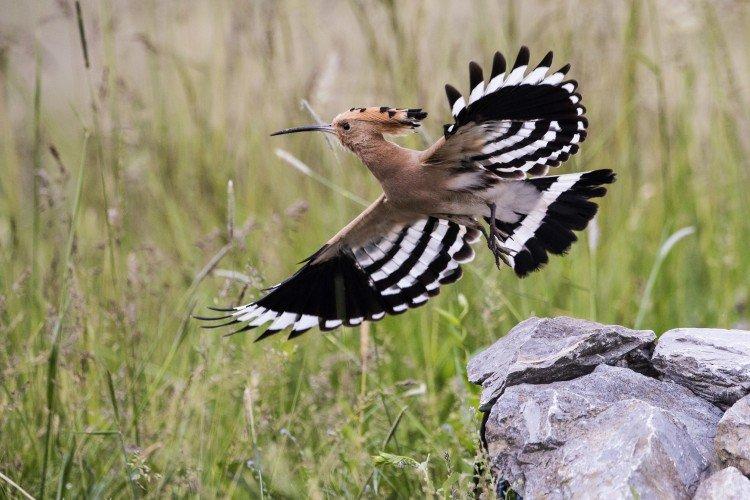
Hoopoe - bird photo
The hoopoe simply cannot be confused with other birds. Just look at its unusual plumage and long beak!
